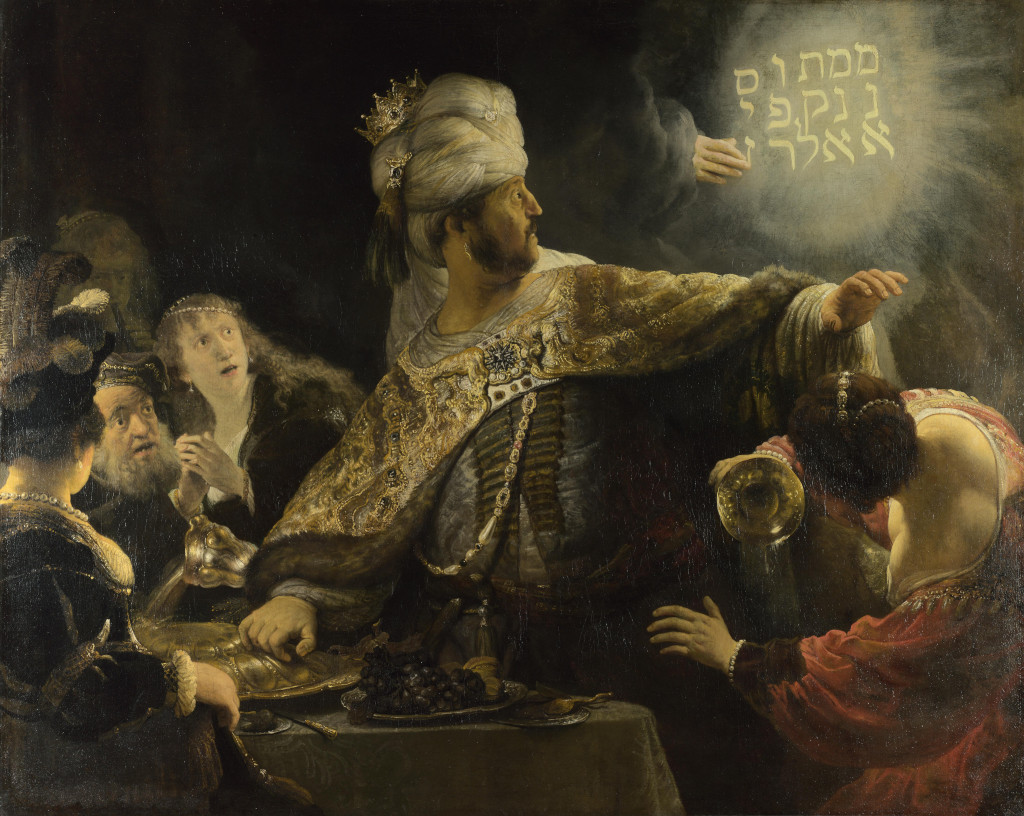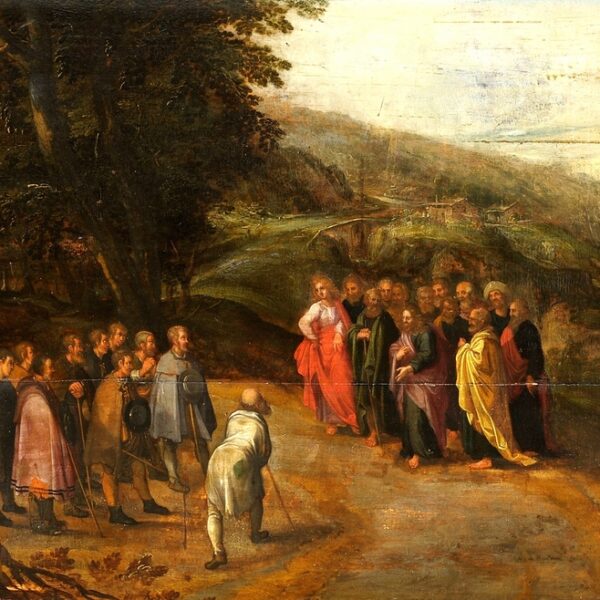Frighteningly dangerous: the church without the Fear of the Lord

Bringing Cain’s Offering to the House of the Lord
May 2, 2019
Christmas in Yesteryear
December 9, 2019The following is from a message given recently at church. It is part one of two.
I wonder how many of you feel as though you’ve spent as much time evangelizing the church the last several years as you have the unbelieving world?
Growing up in the church, as a kid, my innate sense was that families were mostly on the same page. There might be slightly laxer rules about television programming at someone else’s house, or maybe some households didn’t have as strict a curfew, but generally speaking, doctrinally, ideologically, morally, we were on the same page. The exception being, perhaps, our church as an anabaptist community of believers, whether a Christian should ever enlist in the armed forces; there’d you’d likely find people across the spectrum. We were in agreement, sometimes stated but usually hardly necessary, that we as a church generally were of the same position on the foremost issues of our day.
However, just in the last decade, encountering someone who professes to be a Christian doesn’t automatically mean they’re going to share the same value system.
I remember the experience of getting baptized in the Holy Spirit and kind of feeling out different prayer groups and fellowships afterward, to sense whether it was a safe place to mention or move in the gifts of the Spirit. You know, you talk about healing and you get the deer in the headlights look. Now, when I’m among professing Christians whom I don’t know as well, I find myself feeling out whether it’s safe to talk about Biblical standards.
I find as I read my Bible that the scriptures continually challenge my thinking and my foreknowledge of my Creator. I discover, as I read my Bible, a God who is more generous, more overwhelmingly kind, more intimately acquainted with the details of mankind, than I ever imagined. And as I study my Bible, there emerges a God more exacting, more infinitely Holy, and more fearful than I previously imagined.
There is a difference, you see, between professing to love the Lord and truly fearing the Lord. And we cannot love the Lord without fearing Him. And we cannot fear the Lord without loving His word.
The Fear of the Lord
We don’t like the word “fear.” It’s become a bad word in the church. Certainly, there is a spirit of fear that scripture talks about which we are indeed to shun and be delivered from. But to fear the Lord is a holy command found time and again, interwoven throughout the books of the Bible; and I believe the Lord is underscoring this in a time when Biblical illiteracy, despite our access to the Word of God, is at an all-time high.
What is the fear of the Lord?
The words in both Hebrew and Greek carry the same connotation. In Hebrew, the word is yir’ah, and means fear, dread, terror; to be in awe of some terrifying thing; to respect with reverence and piety.
The word used in Greek for fear is Phobos, from which we get our word “phobia” – is defined similarly as fear, dread, or terror and carries with it also the meaning of reverence. This word is used for what overcame the shepherds on the night of Christ’s birth when the angels appeared. It describes the reaction of the disciples when they saw what appeared to be a ghost walking on the seas and they cried out loud. It describes the guards in charge of Jesus’ tomb when the earthquake occurred and the stone was rolled away.
So this notion of fear really is dread terror, tied in with reverence and holy wonder.
He is an awesome God. And there is something about Him that, when we recognize it, it unsettles us. When we encounter the Living God, the interaction leaves us undone.
Effects of the Fear of the Lord
The fear of the Lord is meant to create right thinking in us. The fear of the Lord is meant to create right thinking in those around us. It says of the wicked man, “There is no fear of God before his eyes.”
All throughout scripture, both old testament and new, the phrase “fear of the Lord” is nearly always accompanied with a shunning or forsaking and abject hatred of what is evil. So you cannot fear the Lord and also embrace what He calls sin.
The neglect of the fear of the Lord, you see, has left us with a diluted and sloppy theology.
The fear of the Lord is not legalism. Legalism is trying to earn favor through works. Legalism encourages pride and self-righteousness. It produces guilt, self-abasement, and burnout.
The fear of the Lord, by contrast, produces wisdom. Proverbs 9:10, “The fear of the Lord is the beginning of wisdom, and the knowledge of the Holy One is understanding”
Wisdom 101. If you want the foundations, to start in it, you must fear the Lord. So without it, scripture implies that you can be highly educated, a scholar, with degrees of all kind, but a colossal fool if you don’t fear the Lord. Scripture more than implies it. It says “the fool has said in his heart there is no god.”
It is a grave concern that we dare not neglect, that individuals with high degrees and lofty ideas but no fear of the Lord are the majority educating our children. They’re spending more time with them percentage wise than the children are spending with their parents. (In July I attended a practicum and several former public school teachers were present. More than one of them attested to the classroom being used increasingly as an incubator for social reform rather than education. Certainly, when I was in high school and college back in the 1990s this was the case; it is even more so now.)
(I encourage all of us parents to seek the Lord in matters of education. We have college funds for our children but if they reach the age of 18 I am not going to send my kids to a place that will rip their faith apart if I’m hearing from the Lord strong warning. There’s this idea that a college education is essential to getting ahead in life, and I’m not discounting its value. But the Bible also says, “What does it profit a man if he gains the whole world – the best job, the best salary, the most prestige – and loses his soul?” I’d rather my kids be less formally educated by worldly standards and yet retain wisdom, than follow what the culture demands is essential if it will cost them their faith.)
- The fear of the Lord produces a humble spirit. When we see the Lord as He rightly is, we begin to see ourselves as we rightly are.
- The fear of the Lord leads to holiness. Jonathan Edwards, the 18th century minister who preached the famous sermon, Sinners in the Hands of an Angry God, said that he did not want to engage in any activity that he would not do if he knew it were the last hour of his life.
- The fear of the Lord is protection from the enemy (The angel of the Lord encamps round about them that fear him, and delivers them. Psalm 34:7)
- The fear of the Lord prolongs life (Proverbs 10:27)
- The fear of the Lord brings healing “For behold, the day is coming, burning like a furnace; and all the arrogant and every evildoer will be chaff; and the day that is coming will set them ablaze,” says the LORD of hosts, “so that it will leave them neither root nor branch. But for you who fear My name, the sun of righteousness will rise with healing in its wings; and you will go forth and skip about like calves from the stall. You will tread down the wicked, for they will be ashes under the soles of your feet on the day which I am preparing,” says the LORD of hosts.
- The fear of the Lord produces intimacy with the Father. Abraham, Moses, Joshua, Deborah, Daniel, Anna, Cornelius, Stephen, and Paul walked in great fear of the Lord, and they enjoyed intimacy with Him. The secrets of God’s heart were revealed to them. It says of Moses, the Lawgiver, that “he talked with the Lord face to face, as a man talks to his friend” (Exodus 33:11).
- The fear of the Lord produces faith. “By faith, Noah, when warned about things not yet seen, in godly fear built an ark to save his family.” (Hebrews 11)
- The fear of the Lord produces conviction in unbelievers (Acts 5:11, Acts 19:17, Genesis 35:5)
Scripture says that after the sons of Sceva tried to usurp the power of the Holy Spirit and use it for their own selfish gain, the demoniac jumped them and overpowered because they did not operate in the authority of Jesus Christ. It says, What happened “became known to all the Jews and Greeks living in Ephesus, and fear came over all of them. So the name of the Lord Jesus was held in high honor. Many who had believed now came forward, confessing and disclosing their deeds. And a number of those who had practiced magic arts brought their books and burned them in front of everyone.” (Acts 19:16-19)
Likewise, in Acts 16, Paul and Silas were worshiping and singing hymns, and all the prisoners it says, were listening to them. And about midnight there was a great earthquake, so that the prison walls were shaken and everyone’s bonds were loosed. “When the jailer woke and saw that the prison doors were open, he drew his sword and was about to kill himself, supposing that the prisoners had escaped. But Paul cried with a loud voice, “Do not harm yourself, for we are all here.” And the jailer called for lights and rushed in, and trembling with fear he fell down before Paul and Silas. Then he brought them out and said, “Sirs, what must I do to be saved?” And they said, “Believe in the Lord Jesus, and you will be saved, you and your household.” (vv. 29-31)
Don’t let anyone, including yourself, tell you you’re being legalistic for obeying what the Lord is telling you to do. Don’t reason away your conviction because God is calling you into a higher level of intimacy with and faith in Him than you were before, and this means relinquishing some form of entertainment that you used to think was perfectly fine. Don’t let yourself be robbed of the splendor He has for you because you see someone else enjoying certain past times, and they are good people. But the Holy Spirit is nudging you in another direction. He is worth your obedience!
Christ does not have an open marriage with His bride! He will not look the other way while we have a fling with sin.





